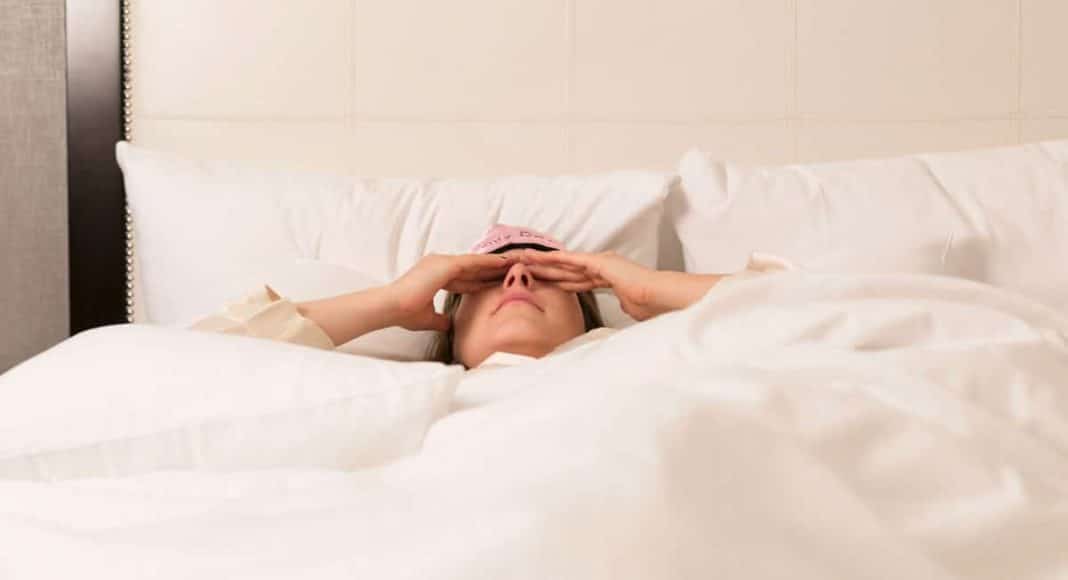If you are a sound sleeper, give thanks. Restful sleep is an easy thing to take for granted when it is working well. For millions of Americans who struggle, it can be maddening. One enormous culprit is sleep apnea, which affects at least 25 million Americans, nearly 1 in 5 adults.
Sleep apnea causes one or more pauses in breathing that can last for just a few seconds to minutes. This can happen dozens of times during one evening. Typically, it is a chronic condition that can cause severe sleep disruption. Poor sleep quality leads to daytime drowsiness and inhibited brain function. In this case, it can also lead to much more serious health conditions like heart disease and stroke, so remedies are more than just about comfort.
CPAP machines, which stand for continuous positive airway pressure, are commonly used by people with sleep apnea. Users sleep or attempt to sleep with a mask on their face that is connected to a machine at the bedside. It can be uncomfortable and restricting. Many patients simply stop using them. At best, a CPAP machine addresses the condition’s effects but not the cause.
- Related Story: Here’s The Number One Reason Why People Use Marijuana
Physicians are interested in finding a pharmaceutical answer that will ease or stop the condition itself. There is currently no prescription medicine approved by the FDA for sleep apnea. Sufferers who experience daytime sleepiness are often prescribed meds for wakefulness during the day and barbiturates, hypnotics and sedatives at night. Of course, each of these can cause its own complication and risk.
An update on a landmark sleep apnea study was recently published in the journal Sleep. It is the largest scale research project with this focus. It observed patients with obstructive sleep apnea, the most common form of the condition and the ability of a synthetic THC drug called Dronabinol to help versus the effectiveness of a placebo.
Dronabinol, commercially known as Marinol, is based on the main psychoactive substance in cannabis, the cannabinoid THC. Although the FDA has not recognized cannabis as having any therapeutic value, Dronabinol has been approved as a synthetic form since 1985 and it is currently prescribed to improve appetite and to combat the nausea and vomiting caused by chemotherapy.
Participants in this study were divided into three groups. They were not sure if they were part of the low dose (2.5 mg), high dose (10 mg) or placebo group (0 mg), but each night one hour before bedtime, they took their capsules. After six weeks of study, researchers found that the best result was from the high dose group, which showed lower ratings on the sleep apnea scale and showed “improved self-reported sleepiness, and greater overall treatment satisfaction.“ These were serious improvements attributed to a synthetic cannabinoid.
Researchers warned that this does not translate into using real cannabis for the same effect and that it would introduce too many unknown variables in composition. Of course, there is great benefit to companies that tout the value of synthetics over what mother nature has worked to evolve for millions of years. The cost of Dronabinol for a patient who had to pay for the effective high dose would be nearly $1,400..for a single month! Keep in mind that this is a remedy not a cure, so a user may expect to pay these prices as long as he/she could afford good sleep.
With results as promising as these and possibilities for profit, we can expect to see more research examining this question further. You can bet that many people who suffer from sleep apnea may begin to do their own home studies, despite the caution from researchers that Dronabinol is not cannabis. In fact, that is the very reason some may reach for their vape pens or 10 mg doses of edibles before bedtime, and it sure as hell won’t cost them $1,400!


